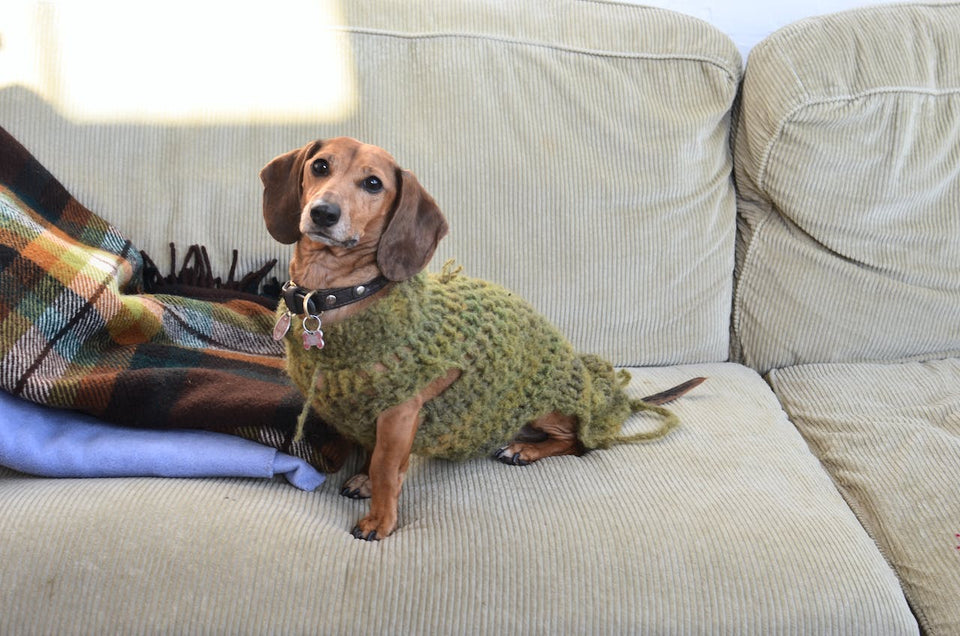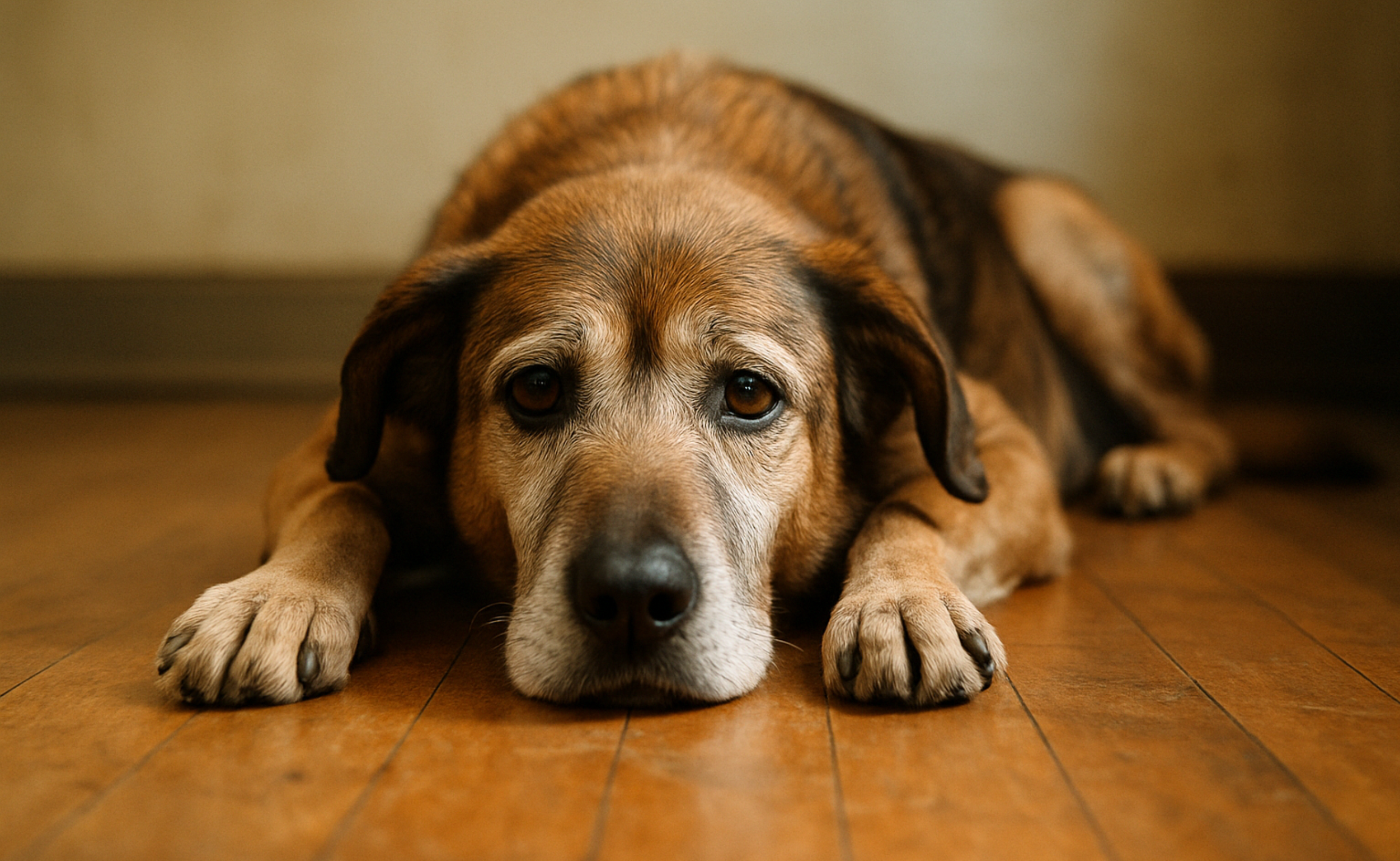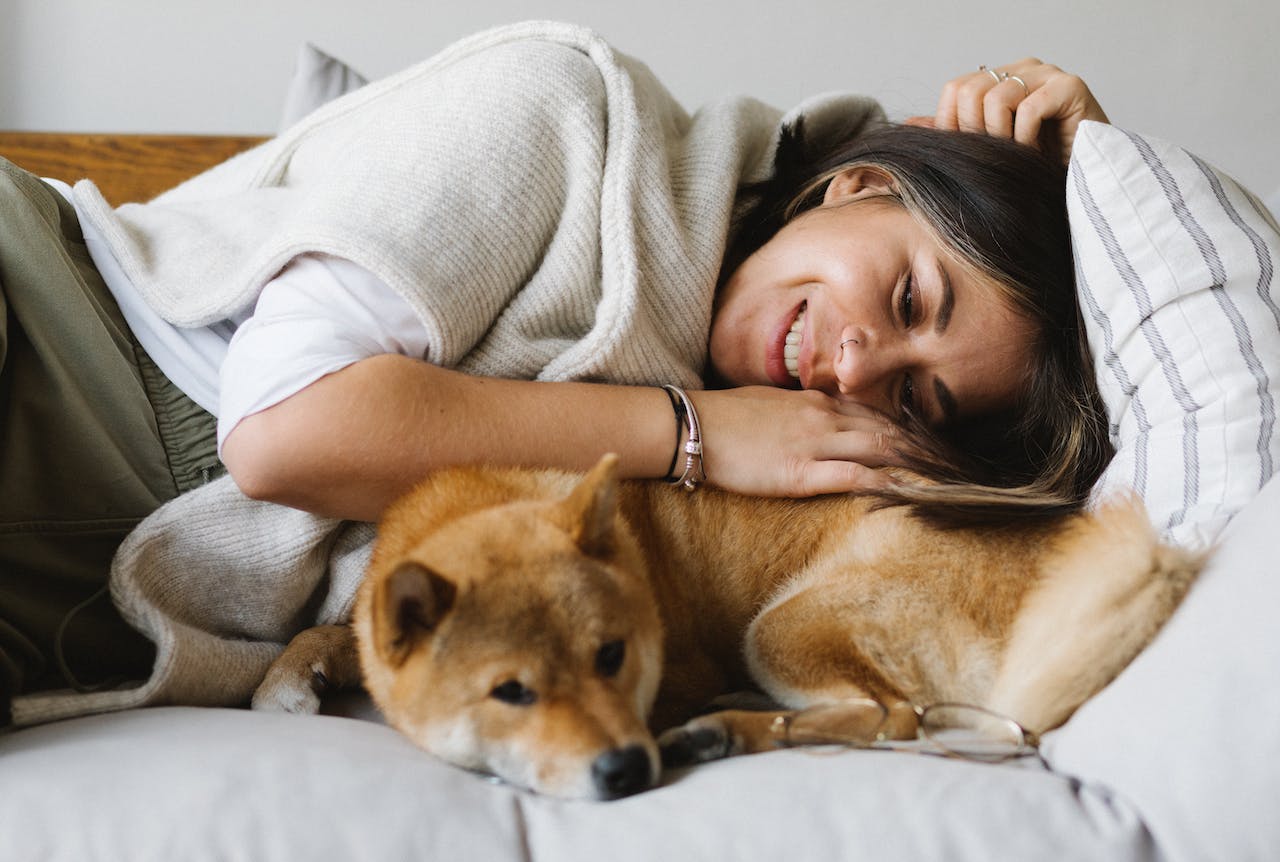How to Get Dog Hair Off Your Couch

If you're constantly finding your couch covered in dog hair, know you're not alone in this struggle. Many pet owners face the same issue, and understanding why dog hair clings to different fabrics is vital. The material on your couch and the texture of your dog's hair affect how much hair sticks to your furniture. Regular cleaning is more than just an aesthetic concern; it's essential for maintaining a healthy living space, particularly for those with allergies, as dog hair can carry allergens and dander.
This guide will explore various methods and tools to remove dog hair from your couch, including vacuum attachments for pet hair and specialized lint brushes to suit different upholstery types. However, it's essential to consider the specific type of couch and dog hair you're dealing with, as different materials like leather, suede, or fabric and the characteristics of your dog's hair require tailored approaches.
Setting realistic expectations is crucial; completely eliminating dog hair may not be feasible, but establishing a manageable cleaning routine can significantly reduce it. Continue reading to discover the best strategies and tools to help you win the battle against dog hair on your furniture.
Choosing the Right Tools for Dog Hair Removal
Vacuum cleaners with pet hair attachments are a game-changer when removing dog hair from couches. These attachments are designed to handle pet hair, making them more efficient than regular vacuum cleaners. Look for models with strong suction and specialized brushes that can delve into the fabric's weave without damaging it.
Lint rollers designed for pet hair are another essential tool. Unlike standard lint rollers, these are made to grip and lift even the finest dog hairs from your couch. They are handy for quick clean-ups and can be easily stored nearby for convenience.
Using rubber gloves for manual removal is a surprisingly effective technique. Wear rubber gloves, dampen them slightly, and run your hands over the couch. The friction the rubber material creates helps gather hair into clumps, which can then be easily picked up or vacuumed.
Upholstery brushes are also effective in removing dog hair. These brushes have bristles designed to gently yet effectively remove hair from different fabric types without causing damage. They can reach hair that vacuums sometimes miss, especially in crevices and along seams.
Lastly, wet sponges and damp cloths can be handy. Lightly dampening a sponge or cloth and gently wiping over the surface can help pick up hair. This method works well for certain fabric types but should be used cautiously to avoid water damage.
Visit Paw.com and discover our range of pet blankets designed to protect your furniture from pet hair. Don't let dog hair take over your couch - get your solution today!
Preventative Measures to Reduce Dog Hair
Regular grooming of your dog is crucial. Frequent brushing reduces the amount of loose hair, which minimizes the hair that ends up on your couch. Choose grooming tools that are appropriate for your dog's coat type.
Pet-friendly couch covers are an excellent investment. These covers protect your couch not only from hair but also from dirt and scratches. They are typically easy to remove and clean, making them a practical solution for pet owners.
Training your dog to use a pet bed can significantly reduce the amount of hair on your couch. Encouraging your dog to have its designated spot helps configure the shedding to a specific area, which is easier to manage.
The importance of a healthy diet for your dog cannot be overstated. A diet rich in essential fatty acids can improve the health of your dog's coat, reducing shedding. Consult with your vet to find the best diet for your dog.
Lastly, maintaining a dog-free zone is an effective strategy. Designating certain areas of your home, like specific couches or rooms, as off-limits to your dog can help control hair spread.
Related: Summer Haircut Inspiration
Cleaning Techniques for Different Types of Couches
When dealing with leather couches, use a soft, dry cloth for regular dusting and a leather conditioner to keep the surface clean and prevent hair from sticking. Avoid using water as much as possible, as it can damage the leather.
For fabric and upholstered couches, vacuuming regularly is vital. Use attachments designed for upholstery and immediately treat any spots or stains to prevent them from setting in.
Suede and velvet couches require special care. Use a suede brush to lift hair and a dry cleaning sponge for stains. Avoid water-based cleaning methods as they can damage these materials.
Before using any cleaning products, it's essential to test them on a small, inconspicuous area of your couch. This helps ensure that the product won't cause discoloration or damage.
Deep Cleaning Strategies for Stubborn Dog Hair
Steam cleaning is highly effective for deep cleaning couches and removing stubborn dog hair. The steam helps to loosen and lift hair deeply embedded in the fabric.
Enzymatic cleaners are great for breaking down pet hair and eliminating odors. They are particularly effective on couches where pet odors are an issue.
For those tough cases, hiring professional upholstery cleaners may be necessary. They have the tools and expertise to clean your couch deep, leaving it looking and smelling fresh.
Baking soda is a natural deodorizer and can be used for deep cleaning. Sprinkle it on the couch, let it sit for a few hours, and then vacuum it up. It helps in removing odors and loosens hair for easier removal.
Regular deep cleaning is important for maintaining your couch. Depending on the level of shedding, a deep clean every few months can keep your furniture in top condition.
Incorporating Dog Hair Removal into Regular Cleaning Routines
Creating a regular cleaning schedule helps maintain a hair-free couch. Consistency is vital, whether daily vacuuming or a weekly deep clean.
Balance quick clean-ups with thorough cleaning sessions. Daily sweeps can manage the hair, while more thorough cleans can be reserved for weekends or when necessary.
Involving family members in the cleaning process can make it less burdensome. Assign tasks and make them a part of your household routine.
Keep your cleaning tools accessible and ready. Storing them nearby encourages regular use and makes keeping on top of the hair easier.
Be aware of seasonal shedding. Dogs tend to shed more during certain times of the year, so you may need to adjust your cleaning routine accordingly.
Natural and DIY Solutions for Dog Hair Removal
Homemade lint rollers can be a cost-effective solution. Wrap some tape around your hand, sticky side out, and pat down the couch to pick up hair.
DIY cleaning solutions, like vinegar and water, can be used for spot cleaning. They are natural and less likely to harm your couch.
Static electricity can also be used to your advantage. Rubbing a balloon or a synthetic fabric over the couch can help lift the hair.
Natural ingredients in your cleaning solutions are not only safer for your household but also can be more environmentally friendly.
However, be aware of the limitations and precautions with DIY methods. Always test them on a small area first, and be cautious with materials sensitive to certain substances.
Transform your struggle with dog hair into a thing of the past! Click over to Paw.com now and explore our collection of pet blankets, perfect for safeguarding your couch from unwanted fur.
Embrace a Fur-Free Living Space
In our quest for a cleaner living space, summarizing key strategies for dog hair removal is vital. We've explored various tools and methods, from specialized vacuum attachments and lint rollers to homemade solutions. Each plays a pivotal role in addressing this common challenge for pet owners. It's important to remember that the success of these strategies largely hinges on the specific type of couch you have and the nature of your dog's hair. Finding the right approach tailored to your unique situation is crucial for effective hair removal.
Consistency and patience are key in the ongoing task of keeping your couch free from dog hair. This isn't just a one-off effort but a regular part of home maintenance. Establishing a routine with quick daily cleanups and more comprehensive weekly sessions is essential for good results. At the same time, maintaining a balance in pet care and cleanliness is essential. This ensures your pet's comfort and well-being through regular grooming and a proper diet, alongside creating a welcoming environment for both pets and owners.
Share this article
written by


